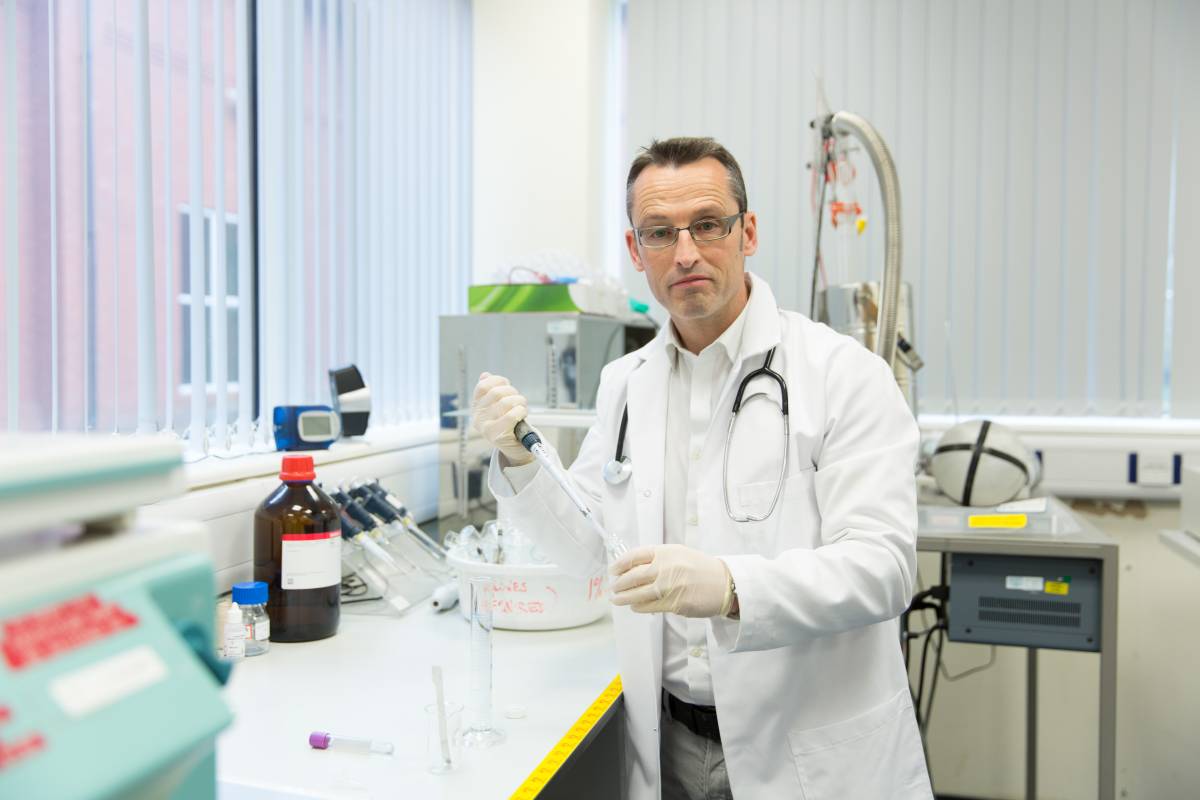Physios to play central role in international high-intensity interval training study
Can high-intensity interval training (HITT) programmes run by physiotherapists help patients who are recovering from stroke?
That is one of the questions to be examined in a project led by Professor Damian Bailey, professor of physiology and biochemistry at the University of South Wales (USW).

Wales-Québec academic partnership
Funded by the Welsh Government as part a collaboration between Wales and Québec, a team based at USW will work closely with academics at McGill University and Université Laval in Canada, as well as colleagues at Cardiff Metropolitan University.
Stroke is the fourth most common cause of death in Wales, and the third largest in Canada. With costs to the NHS and other health systems amounting to billions of pounds a year, finding effective responses has become increasingly important.
According to USW, there is evidence that HIIT can improve cognitive function in older adults who have had either a stroke, or dementia and memory loss. The approach also has a strong track record in helping to rehabilitate patients with conditions such as heart disease, diabetes and chronic obstructive pulmonary disease.
Professor Bailey told PhysioUpdate that physios would be ‘actively involved across the piece, delivering the exercise interventions’.
With overwhelming evidence supporting the musculoskeletal, cardiovascular and cerebrovascular benefits of regular exercise ... now is the time to explore the prescription of HIIT [Prof Damian Bailey]
In an earlier USW statement, he noted: ‘With overwhelming evidence supporting the musculoskeletal, cardiovascular and cerebrovascular benefits of regular exercise – which are comparable to drug interventions in a number of chronic conditions – now is the time to explore the prescription of HIIT that have arguably more potential to promote healthy ageing by delaying stroke, cognitive decline and dementia, benefiting individuals, their families and society in general.’
New research network promised
Professor Bailey is bringing together a group of experts in the prescription of exercise in stroke rehabilitation, neuroplasticity, cardiopulmonary and cerebrovascular health which will form a new research network. One aspect of the study will focus on how HIIT can be used safely and effectively, particularly under the current Covid-related restrictions.
The research team will then design a multisite randomised control trial (RCT) to determine whether HIIT offers any advantages over conventional moderate intensity continuous training. Members will discuss the characteristics of the patients who could benefit most on HIIT, including the time that has passed since they having a stroke, the type of stroke and the location of the brain that has been affected.
Tailoring the parameters of HIIT to the specific goals of the patients will be a priority to maximise the safety and effectiveness of the intervention.
The results of the RCT are expected build on a review published last year in the Journal of Physiology, and will be shared through research networks, charities and local stroke recovery groups. Professor Bailey is cited as one of the co-authors of the paper (see link below), whose main author was Thomas A Calverley, from the Neurovascular Research Laboratory at the USW Faculty of Life Sciences and Education.
HIITing the brain with exercise: mechanisms, consequences and practical recommendations. See: https://doi.org/10.1113/JP275021
Author: Ian A McMillan
Share it with














